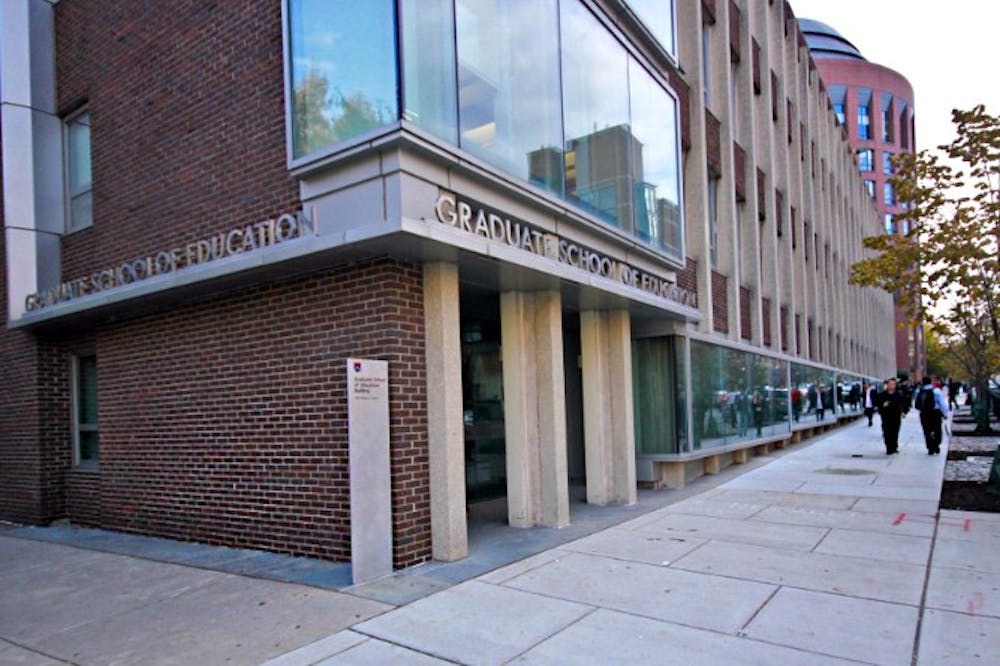In response to the nationwide attention on college student health, Penn graduate students learned how to address mental health. This summer, the Graduate School of Education piloted a course, EDUC 545: “College Student Health”, in order to address health problems on college campuses, ranging from mental health to sexual violence.
The course gave graduate students the opportunity to learn about the role and responsibilities of colleges to protect students’ physical and mental health. Ross Aikins, lecturer and program manager in GSE’s Higher Education Division, created and taught the course with the idea that health is a fundamental basis to student success.
The discussions, readings and guest lecturers covered the difficult balance of developing the minds of our future workforce and maintaining student health in colleges across the nation. In addition, EDUC 545 analyzed postsecondary responses to health crises, including Penn’s “Year of Health” initiative. Aikins says that it’s important for Penn to act and to continue to deal with these tricky issues.
“I think Penn can keep this up. After the Year of Health, many Penn leaders were wondering, ‘What is the next year going to be? The year of not health?’” said Aikins. “Basically, the resolutions from the Year of Health need to continue forward even though the title has expired. The issues need to be kept present to constantly improve and assess what we are doing.”
Each class began with a guest speaker — often from a student services department at Penn — to talk about the resources available for students. Austin Jasienski, a GSE student who participated in EDUC 545, believes that Penn’s resources are unique for a college campus and that the University has properly handled previous health crises.
“Penn has addressed situations that have happened on their campus in a proper and good manner. While some colleges might brush issues under the rug, Penn is very upfront about it,” said Jasienski.
Penn, along with 27 other universities, participated in the “Not Alone” task force. The task force was created by the White House in response to an increasing number of sexual violence and abuse cases on college campuses.
In 2015, Penn conducted a climate survey to identify the prevalence of nonconsensual sexual contact and to understand student views on the climate surrounding sexual assault. The survey revealed that a large percentage of victims of penetrative acts involving force did not report them for a variety of reasons. Some feared negative social consequences (35.6%), felt embarrassed or ashamed or that it would be too difficult emotionally (34.4%) or did not think anything would be done about it (31.7%). Other common reasons for not reporting included not knowing where to go or who to tell (22.7%), fearing it would not be kept confidential (21.3%) and not wanting the person to get in trouble (21.3%).
With courses like EDUC 545, Penn faculty can better help students who might have symptoms of mental health issues and direct them to available resources. Rosalyn Schorr, a GSE student who also participated in the course, says that EDUC 545 made discussions of health more comfortable and approachable.
“In the future, when I am working with students over the summer, for example, and I see a student who constantly doesn’t smile, I now know how to ask them if they are okay and to let them know what resources are available at Penn,” Schorr said. “I think that understanding student health is very important for any Penn faculty or staff member to know.”
EDUC 545 will be offered again this summer with the long-term goal to have the course be available in the fall and spring. Aikins believes that it is important for students who want to have careers in post-secondary education to understand how to deal with tricky issues revolving around student health.
“Overall, institutions are in a really tough place,” Aikins said. “College institutions are asked to do so much and they aren’t really built to basically be a court of law when it comes to situations like sexual assault. But institutions are still evolving. I think the class will evolve, but as long as I am here, I would really love to teach it.”









